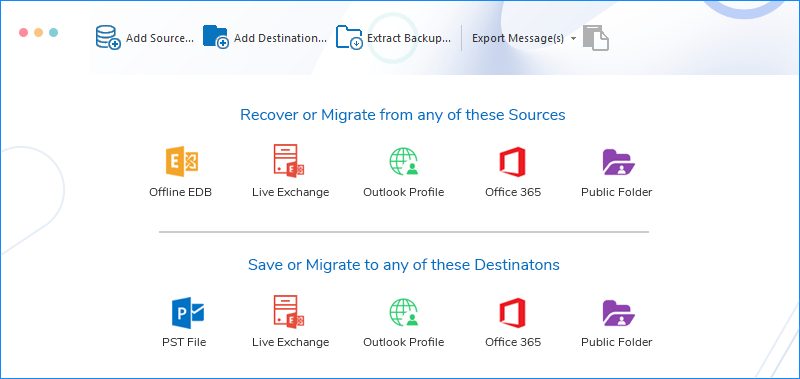Recover corrupt/damaged EDB files & export to Live Exchange
Migrate the offline Exchange EDB files to a live account of Exchange Server on-premises. The tool scans the database file for corruption and recover complete items. For migration mailboxes, there are numerous features for quick data selection, mapping, and saving. The tool supports all the existing and previous versions of Exchange Server.
Download trial version and preview EDB file and Live Exchange data free.- Recover mailboxes from damaged, corrupt, and inaccessible EDB files
- Select mailboxes, mailbox folders, and filter emails to restore data selectively
- Map mailboxes between EDB and Exchange & migrate data

